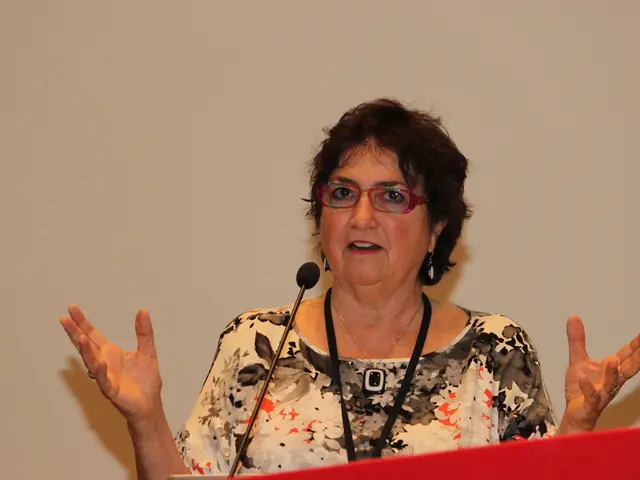Russia's president, Putin, acknowledges potato supply deficiency within the country.
Russian and Belarusian Potato Shortages: President Putin Addresses Growing Crisis
In a State TV broadcast on Tuesday, Russian President Vladimir Putin acknowledged a significant potato shortage within his country. The President, who met with representatives from various economic sectors, including agriculture, noted a lack of potatoes in Russia's supply. Neighboring Belarus is facing a similar predicament.
President Putin revealed during the meeting that the shortage was brought to his attention by Belarusian President Alexander Lukashenko, who admitted that they had already sold all their potatoes to Russia.
Potatoes are a crucial component of Russia's food industry, indispensable in numerous dishes and the production of vodka. However, escalating prices have plagued this essential tuber for quite some time. According to the state statistics agency Rosstat, retail store prices skyrocketed by 92% last year and surged by another 166.5% compared to the previous year in May, making potatoes the fastest-growing food price in the country with the highest increase since records began in 2002.
The price surge follows a poor harvest caused by unpredictable frost and prolonged drought, resulting in a meager 7.2 million tons of potatoes being harvested in 2024, a decrease of 1.2 million tons from the previous year. Agriculture Minister Oksana Lut revealed that Russia requires approximately eight million tons of potatoes annually to meet its demand.
In light of their supply issue, traditionally a significant exporter, Belarus is no longer able to fulfill its obligations. In response, Belarusian President Lukashenko has encouraged Belarusian citizens to tend to their private plots, cultivating potatoes and contributing to the country's production to provide for both domestic and Russian consumption.
Numerous reports have surfaced in Belarus about limited potato availability and poor quality in stores for months. In April, Belarusian authorities authorized price increases for potatoes, cabbage, and onions. Early in May, President Lukashenko also acknowledged Belarus' potato shortage.
The potato crisis in both countries has triggered social discontent, with incidents of looting at dachas (country houses) and an increased reliance on imported potatoes from countries like Egypt, China, and Mongolia. This scarcity has also contributed to food inflation, affecting other vegetables like onions and cabbage that have equally witnessed price surges.
References:- ntv.de- jpe- Enrichment Data: - Poor growing conditions, including drought and unfavorable weather, caused a significant drop in potato production, with a 14% decline in Russia and a 23% decline in Belarus compared to the previous year. - Belarusian producers prioritizing exports to Russia due to higher prices, causing local shortages. - Belarus's state-imposed fixed pricing and export licensing regime limited price increases domestically, worsening local shortages. - Disruptions in seed potato supply from Europe impacting Russian production.*These circumstances combined have resulted in a wartime-like potato crisis, sparking urgent calls for regional cooperation and increased domestic cultivation efforts in Belarus and Russia to alleviate the shortage.
- In an attempt to offset the potato shortage, President Lukashenko of Belarus has suggested that citizens improve their lifestyle and grow more potatoes on their personal plots, contributing to the nation's food-and-drink production.
- As political leaders address this escalating crisis, concerns about the impact on community policy and general-news have been raised, as the potato shortage could potentially reignite political tensions between Russia and Belarus, and contribute to ongoing global food inflation challenges.







